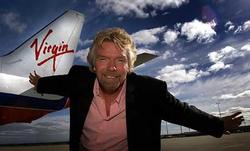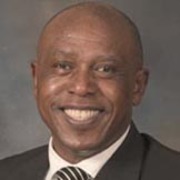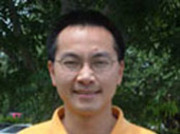The following is a work of fiction. Here is the Table of Contents, which is updated as new chapters are written.
It is the third in a series of sci-fi novels of the type known as
alternate history. What’s different is that this series takes place in
our time, with characters familiar in your real life.
The first book in the series, The Chinese Century, was written late 2004. Its table of contents is here. The second, The American Diaspora, was written in 2005. The table of contents for that book is here.
The helipad on the Tower I lived in had just gone into service, but 2 AM was still the safest hour for Richard Branson’s arrival.
You wouldn’t know that from Branson’s smile as he came down the stairs. “You can’t believe the beauty of this city at night,” he said. “And these buildings! The absolute center of it all.”
When most CEOs come in at 2 in the morning, you expect them to be led to a quiet bedroom. Richard Branson is not most CEOs. Instead we were going directly into a Virgin Maverick board meeting.
Mark Cuban had called it. He was nervous. There were alarm bells in our trading volume. Despite our low costs, we were losing business to…something, somewhere. He didn’t know where.
Once Branson sat down and the niceties were out of the way, he told him. “DCM,” he said calmly. “The Dubai Central Market. That’s where our business is going. The industry is still growing smartly, but this new marketplace is taking big gulps of it.” Branson then took five minutes to outline how former Vice President Cheney had not disappeared after his sudden resignation, how he had opened a market identical in structure to Virgin Maverick in the Emirate of Dubai, and how he was using the contacts of a lifetime, plus Dubai’s tax-free status, to build his market.
As Branson spoke, Cuban’s face went white. I didn’t feel so great myself. “What can we do?” he asked at last.
“Several things,” said Branson confidently. “The most important thing to do is re-examine our entire cost structure. That may mean some fairly sensitive negotiations with the South African government. Once we have our position clear, we’ll have The Lady approach Mbeki directly. He still has several months in power, but I’d want Mr. Zuma and Mr. Sexwale brought into those discussions in whatever form he deems fit.
“Second we need to bring in new sources of capital. We need to expand the ownership of the market, expand the number of stakeholders to China, to India, to Europe. To that end I would like to put up my own stake in this marketplace for bid, privately, through you.”
The table was silent. “Don’t worry, it won’t happen right away. I want the best possible price. And I want to know we have our own succession plan in place.”
Branson continued. “Finally we need to have some contingency plans, both in case our negotiations with the government fail and maintain our independence. We have proven the success of our business model. We have an imitator. So obviously there will be other imitators, with the public market becoming the tip of the iceberg for these private markets. Switzerland would be happy to grant the same rights there that South Africa has given us. We can get the same deal in Uruguay as well. Ever been to Montevideo, Mark? It’s beautiful down by the waterfront.”
Branson’s speech hit me like a punch in the gut. I’d moved my whole family here. I’d made a fortune here. I’d built a business here. Richard Branson could flit around the globe like a butterfly. I couldn’t.
“Why” I managed to croak out.
Branson smiled. “As usual, Dana gets to the heart of the matter,” he said. “Why do I want to sell out of what has become my largest asset? Excellent. Two reasons. First, we need to divesify our ownership generally in order to remain competitive, and I won’t ask anyone here to do something I’m not willing to do. Mr. Blankenhorn, for instance, may be surprised to learn just how much he’s worth on the open market, and just what he might do with his life in that case.
“Second, as you may know I have a new interest. A passion, really. We have to deal with global warming. We have to replace oil as a fuel source. I know this is of interest to the government here, and is of interest all over the world. I want to commit at least $3 billion to Virgin Energy, and this investment has to come from somewhere.” Seeing the frowns around the table, he added. “You can’t fall in love with your portfolio. I spent the first 20 years of my career in the music business, then sold it all for $1 billion in 1992. I survived. It’s amazing how a billion dollars or so will help in that.”
While Branson was speaking I had been casually doodling on a piece of notebook paper. I drew a semi-circle, extended it out with a few lines to give it three dimensions. I stuck a few lines in it, then added a horizon line. “What have you got there?” Branson asked, suddenly making me feel like a six year old caught ignoring the teacher.
I started babbling. “It’s a greenhouse,” I said. “Covered to keep moisture inside. Growing some fast-growing cellulosic plant that can tolerate extreme heat. Fans on each end which not only keep things as cool as possible, but maintain carbon dioxide levels. Photosynthesis turns carbon dioxide into oxygen, so the air coming out will be slightly higher in oxygen than what goes in.”
“IN-teresting,” said Branson. “Go on.”
I took a breath. “You use solar panels to power the fans, and to pump in water. So you want to site this near a large source of water, an ocean. You also want your first plants to be situated as far away from civilization as possible. Say, near Windhoek, Namibia. Lots of underused seacoast, lots of sunshine, lots of water.”
“How much electricity would be needed to run both the water production, the pumping, even the cellulosic process itself?” Branson mused.
“We can get some Witwaterswand interns on it,” I suggested, “but I’m pretty certain that current technology won’t allow for that. But I did get an e-mail a few days ago you might find interesting. It’s from an alumni mailing list I still belong to, from Rice Univesity in Texas. It describes a new method for creating quantum dots, using a chemical often found in shampoo. You increase the yield dramatically, the costs are lower as well. This is still laboratory stuff, but if we can get fast commercial production on this….”
I was out of gas. Branson wasn’t. He was nodding. Then he was laughing, that giant Branson laugh known around the world.














The Blog
I would love to be able to come back and write a post about how we are developing, or have picked up a show based on a [url=http://gerucovo.info/Ml83NjUwMw==]comment[/url] posted to the blog.